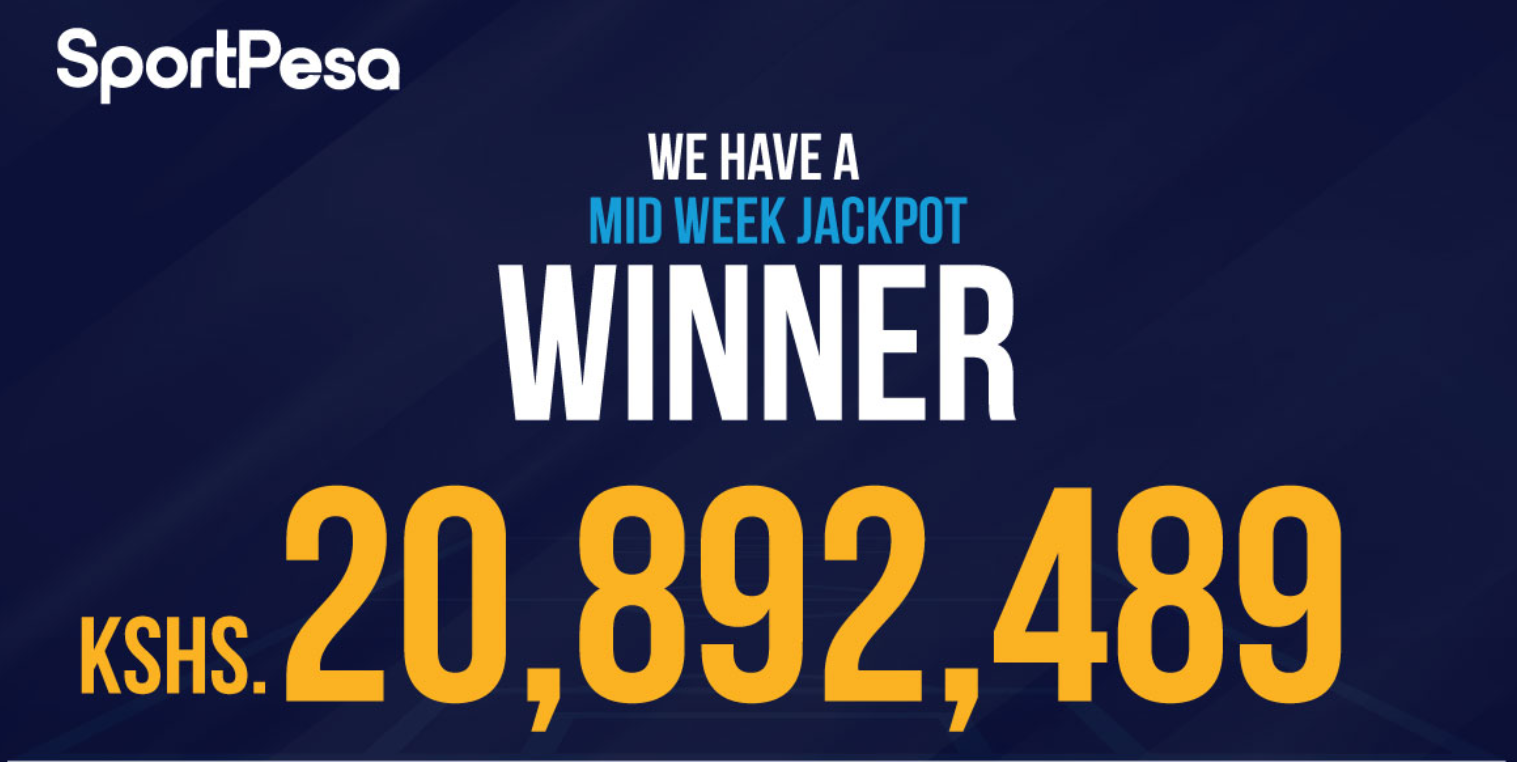Investigations
THE GAMBLING GAMBIT: Inside SportPesa’s Jackpot Wars

An investigative report into Kenya’s controversial betting industry
In the digital gambling battlegrounds of Kenya, a complex and controversial war is unfolding. While SportPesa launches attacks against the popular Aviator game, explosive documents reveal the company’s own flagship product may be built on a foundation of systematic deception.
The Numbers Game: SportPesa’s Mega Jackpot Under Scrutiny
Each week, approximately three million Kenyans place Ksh 99 bets on SportPesa’s Mega Jackpot, collectively pouring nearly Ksh 297 million into the company’s coffers.
The promise is enticing: correctly predict 17 football match outcomes and win up to Ksh 300 million.
But according to internal industry sources and documents obtained by this publication, SportPesa pays out only about Ksh 2 million weekly from this massive revenue stream—less than 1% of what they collect.
“The mathematical probability of winning is already astronomical—comparable to winning a major lottery,” explains Dr. Emilia Karanja, a statistics professor at the University of Nairobi.
“But what’s more troubling are allegations that the company artificially dilutes the winnings through what appears to be systematic manipulation.”
The “Ghost Winners” Phenomenon
A bombshell report dated May 2, 2025, details how SportPesa allegedly manufactures “ghost winners” to reduce payouts to legitimate winners.
According to the report, when a player correctly predicts 16 out of 17 matches—qualifying for a Ksh 12 million bonus—SportPesa often claims that dozens or even hundreds of other players achieved the same result, forcing the prize to be split. This can reduce a potential multi-million shilling payout to mere thousands.
“Because there’s no public audit of jackpot results, SportPesa operates unchecked,” report states. “The system is engineered to pocket millions weekly while offering peanuts in return.”
Multiple former employees, speaking on condition of anonymity, corroborated these allegations. “The system allows for manual adjustments to the number of winners,” one ex-IT specialist claimed. “It’s like a tap they can turn up or down depending on how much they want to pay out that week.”
The Aviator Paradox
In a striking twist, while SportPesa allegedly underpays on its own Jackpot product, the company has simultaneously launched what appears to be a coordinated campaign against Aviator—a competing game featured on multiple betting platforms.
Sources within Kenya’s digital marketing industry reveal that SportPesa has been quietly paying bloggers and social media influencers to portray Aviator as “rigged” and “dangerous,” offering between Ksh 10,000 to Ksh 50,000 per negative piece.
This creates a remarkable paradox: the report claims Aviator is “another toxic trap” that has “driven several desperate Kenyans to suicide after devastating losses.”
Yet industry analysts note that Aviator’s transparent mechanics—where players see odds in real-time and decide when to cash out—provide substantially better winning chances than SportPesa’s Jackpot.
“It’s the ultimate corporate hypocrisy,” says James Kiprop, a digital economist monitoring Kenya’s betting industry.
“They’re attacking a competitor for being supposedly dangerous while operating a product with far worse odds and troubling allegations of manipulation.”
The Regulatory Black Hole
Despite mounting evidence of potential malfeasance, Kenya’s regulatory bodies have shown little appetite for confronting these issues.
The Betting Control and Licensing Board (BCLB) and Kenya Revenue Authority (KRA) have faced criticism for inadequate oversight of the industry’s practices. Multiple formal complaints regarding SportPesa’s jackpot operations have reportedly gone uninvestigated.
“The regulatory frameworks exist on paper, but enforcement is virtually non-existent,” says Sarah Mwangi, a consumer protection advocate.
“We’re talking about billions of shillings flowing through systems with minimal oversight, impacting millions of vulnerable Kenyans.”
The Scammer Ecosystem
Perhaps most alarming are allegations of collusion between SportPesa insiders and external scammers. According to the investigation, fraudsters with connections to SportPesa’s IT department gain access to user data and use phone numbers nearly identical to SportPesa’s official lines.
These scammers create convincing fake versions of the SportPesa website, promising “inside information” on fixed matches. Victims pay for these supposed guaranteed wins, only to lose both their initial investment and any additional funds they bet.
“It’s a perfect storm of exploitation,” explains cybersecurity expert David Kimathi.
“The legitimate gambling platform creates the environment of hope and desperation, while the scammers move in to extract even more money from already vulnerable people.”
The Human Cost
Behind the corporate strategies and regulatory failures lies a profound human toll. Kenya’s gambling addiction rates have soared in recent years, with devastating consequences for individuals and families.
Mental health professionals report increasing cases of gambling-related depression, anxiety, and even suicide.
Financial counselors describe families torn apart by gambling debts, with some losing homes and life savings to betting addiction.
“These aren’t just games,” says psychologist Dr. Tabitha Nyawira.
“They’re carefully engineered psychological traps that exploit hope and desperation. When we talk about Ksh 297 million collected weekly, we’re talking about money often coming from people who cannot afford to lose it.”
Looking Forward
As this investigation continues, questions remain about how long Kenya’s betting industry can operate with such limited oversight. Consumer advocates are calling for:
- Mandatory independent auditing of all jackpot results
- Public disclosure of actual odds and payout rates
- Strict enforcement of truth-in-advertising laws for betting promotions
- Investigation into the alleged “ghost winners” scheme
Until such reforms are implemented, millions of Kenyans will continue placing their hopes—and their limited finances—on games that may be rigged against them from the start.
This investigation was conducted over four months and included interviews with mathematical experts, industry insiders, digital marketing professionals, and analysis of confidential documents. Multiple requests for comment from SportPesa went unanswered prior to publication.
Kenya Insights allows guest blogging, if you want to be published on Kenya’s most authoritative and accurate blog, have an expose, news TIPS, story angles, human interest stories, drop us an email on [email protected] or via Telegram
-

 Business4 days ago
Business4 days agoCooking Fuel Firm Koko Collapses After Govt Blocks Sh23bn Carbon Deal
-

 Business3 days ago
Business3 days agoABSA BANK IN CRISIS: How Internal Rot and Client Betrayals Have Exposed Kenya’s Banking Giant
-

 Politics2 weeks ago
Politics2 weeks agoYour Excellency! How Ida’s New Job Title From Ruto’s Envoy Job Is Likely to Impact Luo Politics Post Raila
-

 Business2 weeks ago
Business2 weeks agoMinnesota Fraud, Rice Saga, Medical Equipment Deal: Why BBS Mall Owner Abdiweli Hassan is Becoming The Face of Controversial Somali Businessman in Nairobi
-

 Americas3 days ago
Americas3 days agoEpstein Files: Bill Clinton and George Bush Accused Of Raping A Boy In A Yacht Of ‘Ritualistic Sacrifice’
-

 News2 weeks ago
News2 weeks agoKenya Stares At Health Catastrophe As US Abandons WHO, Threatens Billions In Disease Fighting Programmes
-

 News2 weeks ago
News2 weeks agoDCI Probes Meridian Equator Hospital After Botched Procedure That Killed a Lawyer
-

 Investigations1 week ago
Investigations1 week agoPaul Ndung’u Sues SportPesa for Sh348 Million in UK Court, Accuses Safaricom Boss of Sh2.3 Billion Conspiracy















